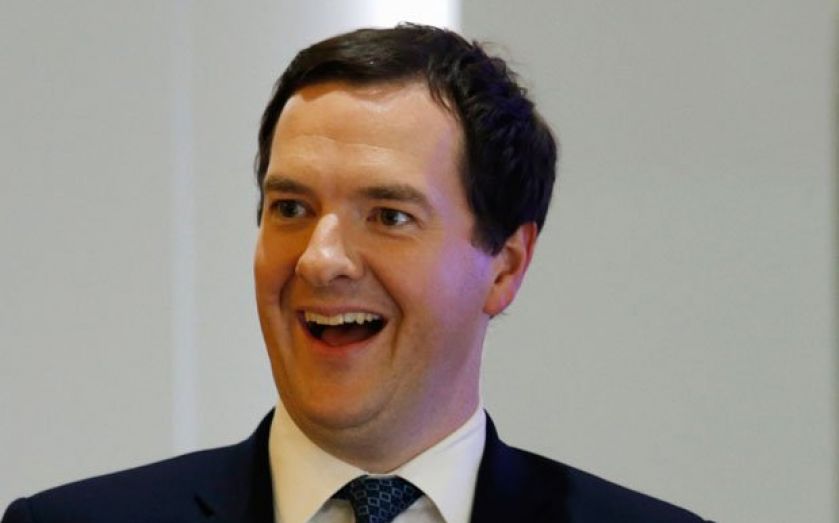Osborne warns the deficit remains a major threat

THE UK’S budget deficit shrank again in September, official figures showed yesterday, but the chancellor warned it will take a sustained policy drive to remove the underlying problems in the government’s finances.
In September the deficit came in at £11.1bn, or £1bn smaller than the same month a year earlier.
Tax receipts increased seven per cent, rising to £44.8bn compared with £41.9bn in September 2012, while central government spending increased 2.5 per cent to £53.2bn.
Income tax and capital gains tax receipts jumped 11.9 per cent, while VAT receipts also climbed 4.1 per cent.
That drop in the deficit raises hopes the government will borrow less this year than it expected back in March.
The Office for National Statistics expects the year’s deficit to fall to £86.5bn, below the £107.7bn the Office for Budget Responsibility had forecast.
However the national debt is increasing, rising to £1.21 trillion in September – 75.9 per cent of GDP, up from 72.6 per cent a year ago.
But George Osborne remained cautious on the fall in borrowing.
“An improving economic situation in the UK does not automatically lead to a windfall for the public finances because we should not assume that a structural deficit is solved by an improvement in GDP,” the chancellor told the Thomson Reuters Newsmaker event in Canary Wharf.
And analysts said one-off factors including the transfer of the Royal Mail pension scheme and the shifting of funds from the Bank of England’s asset purchase programme blur the figures.
“The multitude of one-off special factors affecting the public finance data makes it extremely difficult to gauge the underlying trend, but it looks marginally positive,” said Simon Hayes at Barclays. “The public sector net cash requirement was healthier than expected – it registered a net repayment of £0.6bn versus a consensus forecast of an £8.2bn deficit – although £3.2bn of this reflected the cash received from the sale of Lloyds Banking Group shares.”